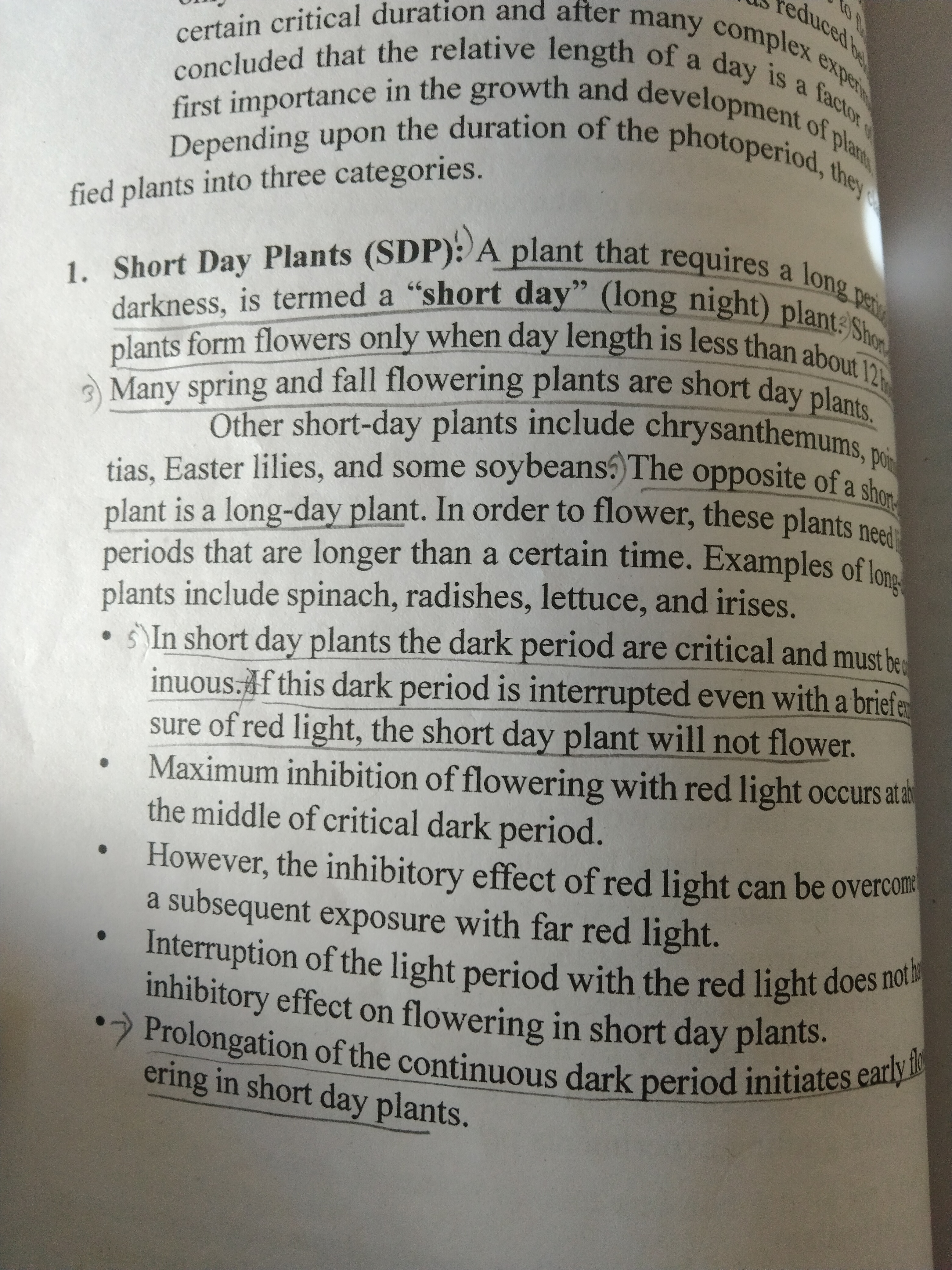What are short day plants and how do light and dark periods affect their flowering?

Understand the Problem
The question is discussing short day plants and their flowering mechanisms associated with light and dark periods. It highlights the critical role of the dark period in determining flowering in these plants.
Answer
Short-day plants flower with long nights; interruptions inhibit flowering.
Short-day plants require longer nights (continuous darkness) to flower. When the night is interrupted by light, their flowering is inhibited. Some common short-day plants include chrysanthemums and poinsettias.
Answer for screen readers
Short-day plants require longer nights (continuous darkness) to flower. When the night is interrupted by light, their flowering is inhibited. Some common short-day plants include chrysanthemums and poinsettias.
More Information
Short-day plants, like chrysanthemums, require longer periods of darkness to initiate flowering. They typically bloom in late summer or fall when days are shorter.
Tips
A common mistake is thinking all plants flower with more light. For short-day plants, darkness is crucial.
Sources
- What are short-day and long-day plants? - news.oregonstate.edu
- Short-day & Long-day Plants: Photoperiodism - myperfectplants.com
AI-generated content may contain errors. Please verify critical information